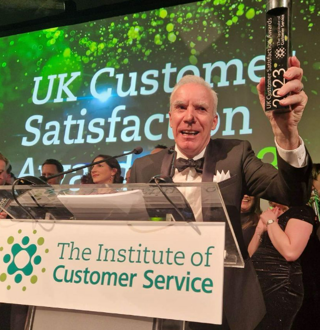The COVID-19 pandemic continues to send ripples through the UK economy. One only needs to look at the news headlines to see the enormous blow it has served to consumer spending – and our own figures indicate this could be set to continue, as shoppers become more mindful of where and how they will spend their money in the future.
It is clear that economic uncertainty, health concerns and the impacts of store closures have dented consumer confidence – and businesses must act now in order to rebuild it. This will require a shift in focus, putting the customer at the very heart of business plans.
Organisations must take the time to gain absolute clarity over who they are serving, and how they are serving them - and use this as a central pillar around which to rebuild.
Much has been said of how to resume operations safely, and it is vital organisations get this right in order to regain confidence. Nervous consumers will need clear markers of reassurance that businesses are acting responsibly to ensure their health and safety, as well as that of employees, is protected. Poorly planned re-openings could damage long-term loyalty, and time and care must be given to ensure that short-term profit opportunities do not lead to a cutting of corners.
But there are also more complex issues at play. This crisis has transformed the way businesses across every sector are able to operate, and accelerated the vital role of customer facing employees in our economy and society.
The days of instant gratification are over, and customers are increasingly looking to brands for more than just simple transactions. A degree of trust, understanding and loyalty will be required to encourage consumers to part ways with carefully guarded money, or choose to visit outlets operating under strict restrictions.
It’s therefore more vital than ever before that businesses prioritise providing excellence in all elements of their service agenda. For those providing essential services, such as utilities and public sector organisations, the past few months have clearly shown the crucial importance of delivering efficient and effective service.
Getting the basics right first time, providing digital options whilst also retaining human contact for complex issues and offering a personal approach to deal effectively with niche or vulnerable groups have been markers of success for businesses throughout the crisis – and customers will expect, and demand, that these practices are maintained as we move into the future.
But looking beyond essential services, businesses will also need to focus on building a compelling customer experience, in order to provide consumers with a reason to engage.
They must work on what we think of as ‘branded services’. This requires not only getting the essential services elements right, but looking further to develop an emotional connection. It is about greater levels of personalisation and differentiation, as well as carving out a unique service proposition that clearly caters to your customer base.
As we emerge from this crisis, customers will be wary, but they will keep shopping.
Those organisations that prioritise their customer service offering, taking the time to understand the needs of their customer base and develop effective and unique propositions to offer them, will reap the greatest rewards.
Author: Jo Causon, chief executive, The Institute of Customer Service

















Login to comment
Comments
No comments have been made yet.